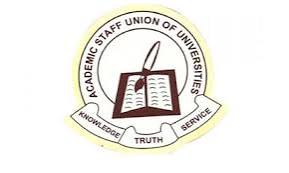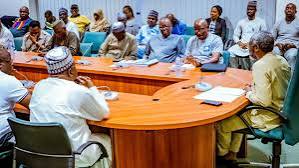The Academic Staff Union of Universities (ASUU) has raised serious concerns about the politicization of education by both federal and state governments in Nigeria. In a scathing critique, ASUU accuses authorities of prioritizing new university projects over adequately funding existing institutions, jeopardizing academic quality.

Dr. Melemi Abatcha, ASUU chairperson at the Federal University Gashua branch in Yobe State, expressed these worries during a recent press conference in Damaturu. According to Abatcha, governments, especially at the state level, treat university education like constituency projects, initiatives politicians bring back to their constituencies. This approach has led to the establishment of new universities without sufficient financial support for existing ones, undermining the overall educational experience.
ASUU’s ongoing concerns include inadequate funding for universities and the challenges faced by academic staff. Despite promises from the federal government, critical issues persist. For instance, the promised allocation of N50 billion to address the backlog of Earned Academic Allowances (EAA) and integrate them into salaries remains unfulfilled since 2023. Lecturers, who diligently fulfill their roles even during strikes, continue to suffer salary delays and other hardships.
The situation is critical, with unresolved disputes threatening strikes in seven universities. ASUU calls for government sincerity in addressing these educational challenges to improve academic conditions nationwide. The union also emphasizes the need for sensitivity to the plights of Nigerians, urging swift action on an acceptable living wage for Nigerian workers.
The situation has far-reaching implications, including:
1. Quality of Education: Politicization of education threatens the quality of learning in Nigerian universities, leading to inadequate funding, outdated facilities, and compromised academic standards.
2. Brain Drain: Talented academics may seek opportunities abroad due to unfavorable conditions, exacerbating the brain drain phenomenon.
3. Stifled Research and Innovation: Insufficient funding hampers research and innovation, limiting universities’ ability to conduct groundbreaking studies, develop new technologies, and contribute to societal progress.
4. Strikes and Disruptions: Persistent issues fuel tensions between academic staff and authorities, leading to strikes that disrupt academic calendars and delay graduation.
5. Diminished Reputation: Neglected universities lose credibility nationally and internationally, impacting collaboration, student enrollment, and global rankings.
6. Economic Impact: A poorly funded education system affects Nigeria’s economic growth, as skilled graduates drive development.
7. Social Inequality: Unequal access to quality education perpetuates social disparities, with marginalized students suffering the most.
Addressing these challenges requires government commitment, increased funding, and a focus on revitalizing existing universities to ensure Nigeria’s higher education system thrives and contributes to national progress.




